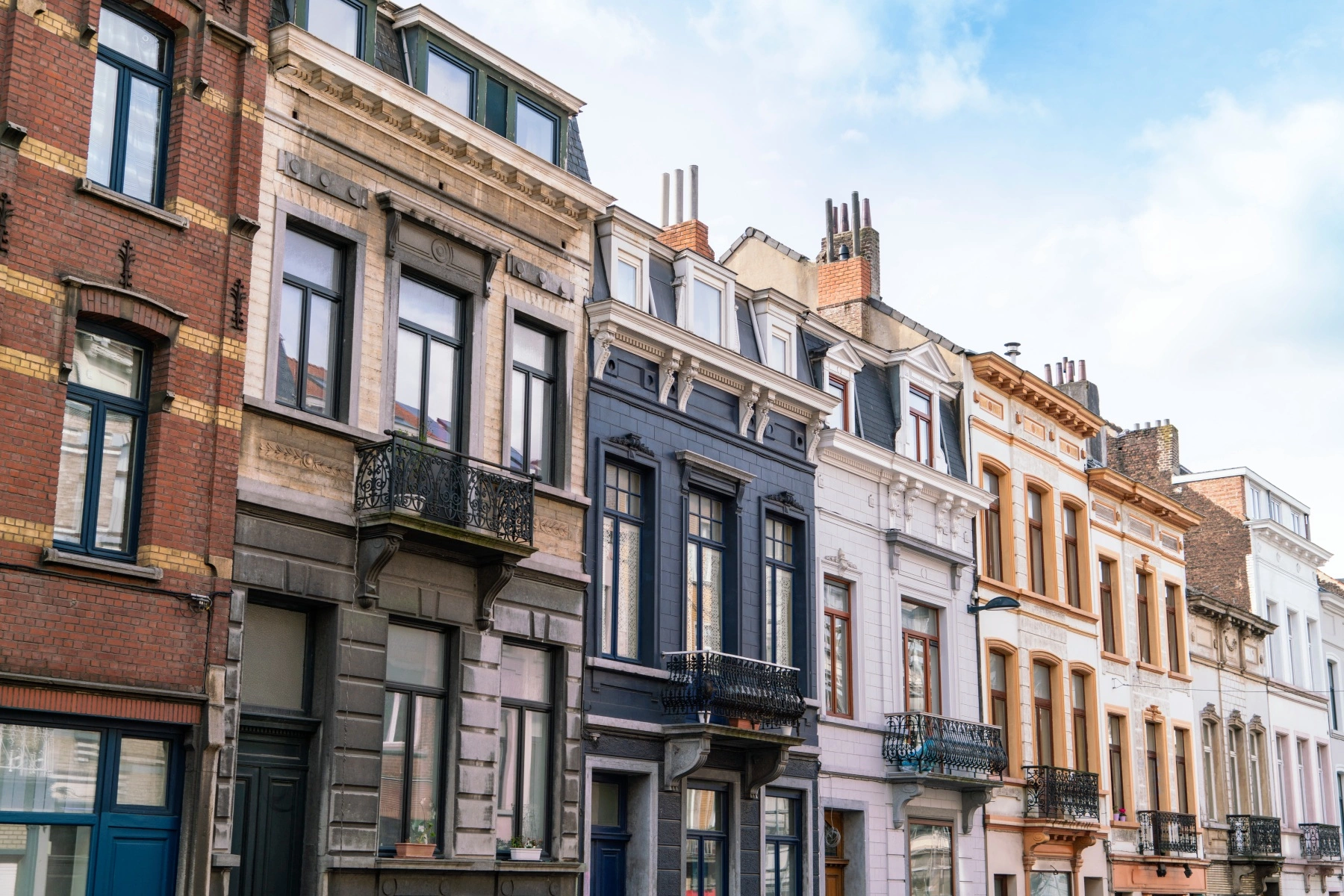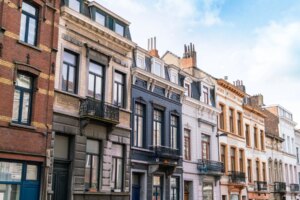Beyond living in Brussels there are plenty of Belgian cities and communes that make great homes for expatriates moving to Belgium. With good road networks in Belgium, it’s possible to live farther afield than Brussels and commute to work.
With Belgium renowned for having some of the worst traffic jams in Europe, being connected to the Belgian public transport system may also help you consider where to live in Belgium. Here are some of the best Belgian cities to live in.
This guide looks at:
Spotahome
Looking for somewhere to rent in Belgium? Spotahome takes the hassle out of househunting by doing the hard work for you. Their online platform lets you find, view, and book rental properties all from the comfort of your own home. Take the stress out of househunting in Belgium with Spotahome.
Best cities in Belgium
Brussels
The capital city and economic center of Belgium, Brussels (Bruxelles in French, Brussel in Dutch) is home to the European Commission and European Parliament. Brussels is a bustling and diverse place, with areas ranging from trendy city center hangouts to quieter suburban areas. Brussels is actually a region, not just a city; the Brussels-Capital Region actually has 19 municipalities (communes in French, gemeenten in Dutch), one of which is actually called the City of Brussels.
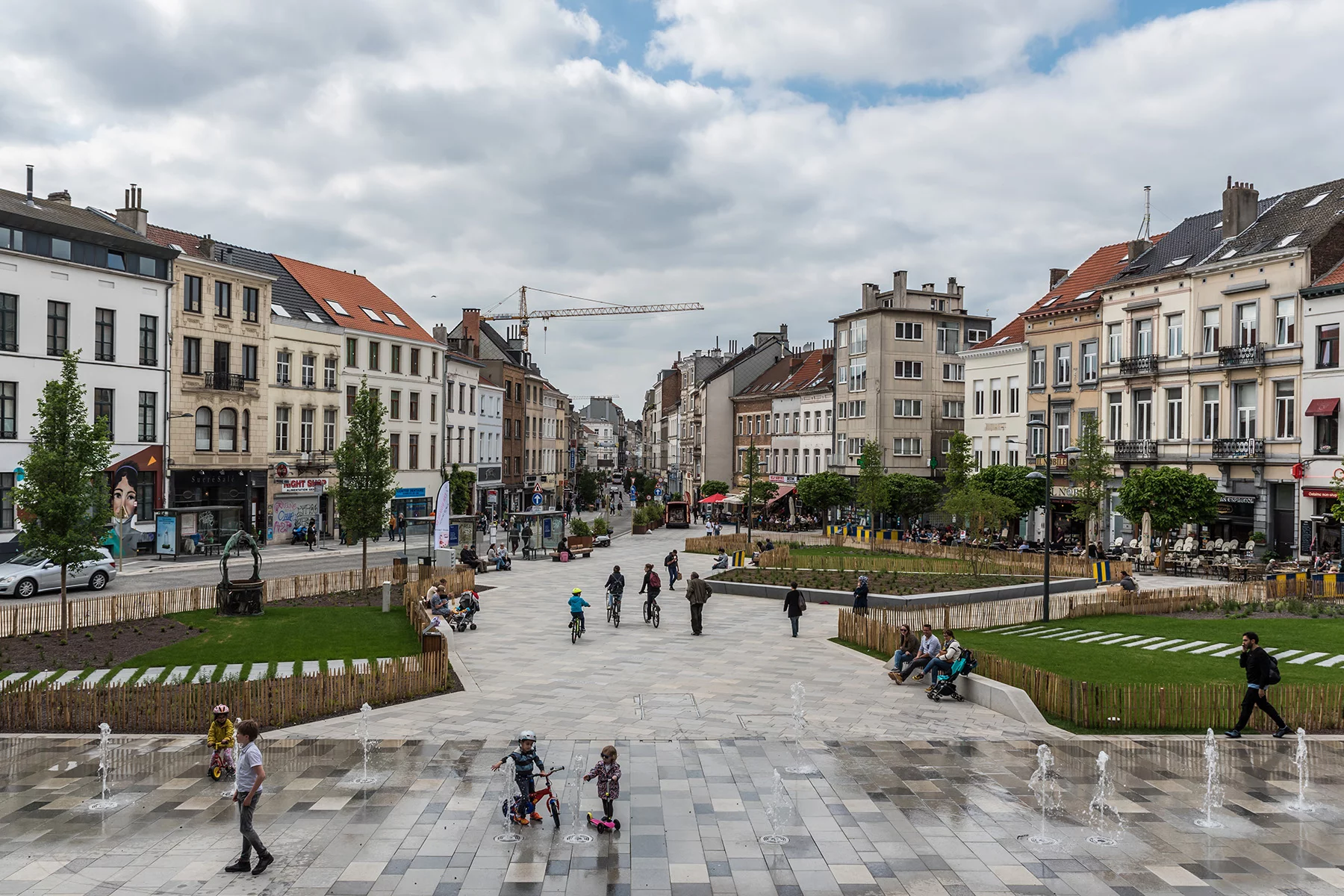
Around 2.5 million people live in the Brussels-Capital Region, making it the largest city in the country. It’s also highly diverse in terms of population, with around 36% of the population of foreign origin. It also has the highest GDP per capita of any Belgian city; as a result, it naturally attracts high-skilled workers and entrepreneurs. Its’ many cultural attractions include the Grote Markt (Grand Place) and La Monnaie.
The best municipalities in Brussels include Etterbeek and Ixelles (Dutch: Elsene) if you’re looking for beautiful architecture and cultural amenities; Uccle (Dutch: Ukkel) if you’re into green living; and Anderlecht if you’re after somewhere a bit cheaper. The city is ideal if you want to be at the center of where everything’s going on. However, there are probably better cities if you want a quiet environment or affordability.
Read more about the cost of living in Brussels.
Antwerp
Antwerp (Antwerpen) offers a truly multicultural environment with an ingrained mix of nationalities. There is a well-sized population of British and American families and a good choice of English-speaking clubs and societies, plus several international schools.
Antwerp’s focus on fashion and cultural tourism often earns it the title of the country’s trendiest city in travel articles. There are also numerous business establishments owing to the port and industrial development, plus a young population drawn to the university facilities and rising job opportunities.
Most families tend to live in the north of the city with its residential flavor and gardened houses. Single expats often live closer to the center in beautiful, albeit expensive, apartments. Up-and-coming areas include Berchem with grand Art Nouveau houses and a slightly bohemian feel. Other rising neighborhoods are Het Eilandje, surrounded by the docklands in the north and close to Antwerp’s giant contemporary museum, MAS; and Sint-Andries, which has the feel of a village within the city.
Take a look into the cost of living in Antwerp. You can also read more in our guide to the best neighborhoods in Antwerp.
Bruges
Popularly known as the northern Venice, Bruges (Brugge) is one of Belgium’s most attractive cities with its cobbled lanes, medieval canals, and imposing buildings. Living in this little UNESCO World Heritage city takes you to Belgium’s historic past while still enjoying the comfort of a lively and modern atmosphere.
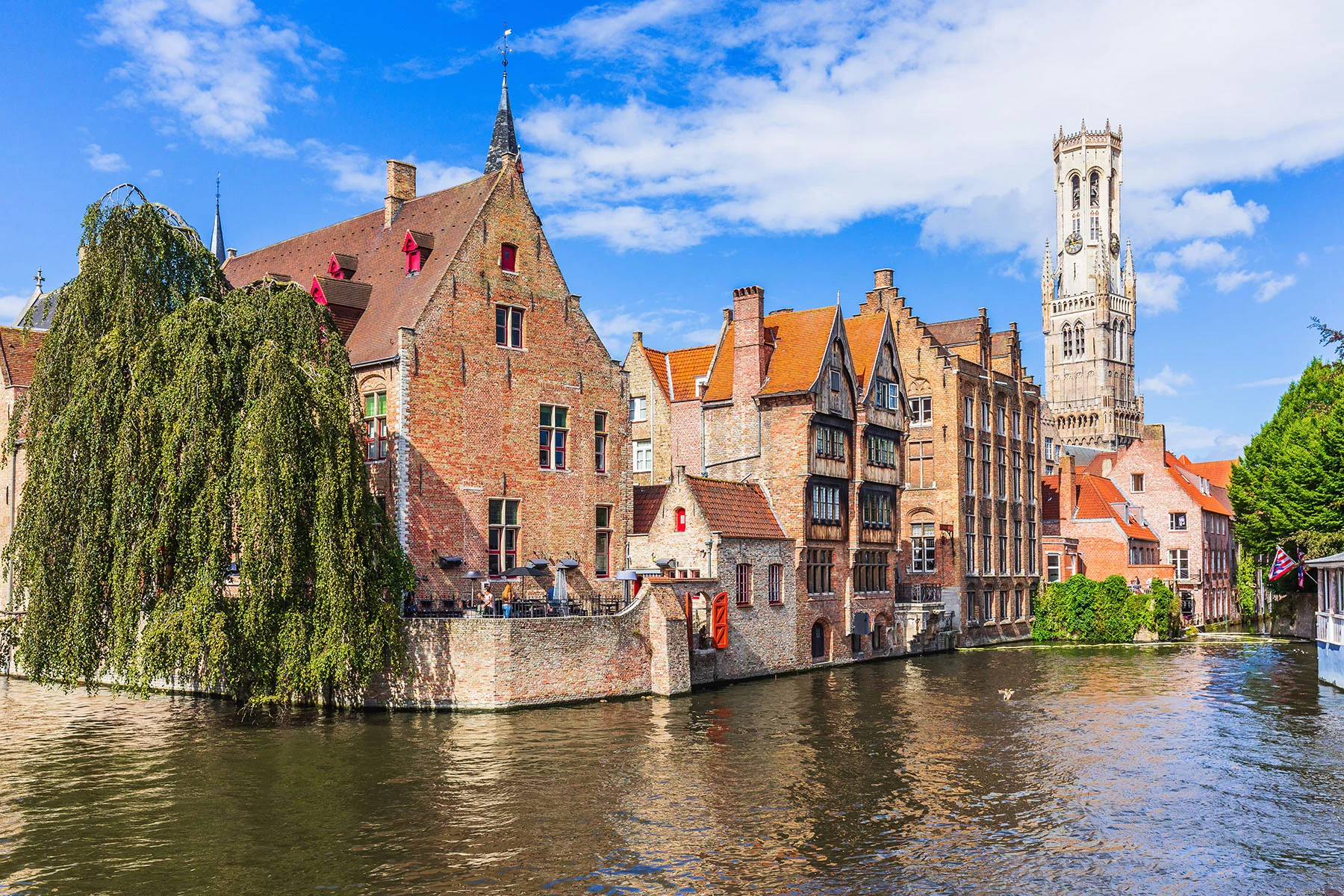
Those seeking more action will find it in the Markt and eastern Burg neighborhoods. Both neighborhoods boast Bruges’ main attractions, such as the Belfry Tower, town hall, and various museums. There are also numerous restaurants, cafés, chocolate shops, and a steady stream of horse-drawn carriages.
If you have children or prefer to stay away from the center bustle, the districts in the outer ring beyond the canals are a good option. Sint-Jozef, Sint-Pieters, Sint-Andries, and Sint-Michiels are four of the most popular residential neighborhoods outside Bruges’ center.
Read up more on the cost of living in Bruges.
Gent
Often called Belgium’s most beautiful city, Gent is growing in popularity with its dynamic mix of cosmopolitan and provincial town feel. Gent is a prominent student town, but there is also a good mix of locals, students, and expats who call it home. The blossoming University of Ghent is influencing the city to become a strong research and development center, retaining more young professionals. With plenty of canals, there’s also plenty of river-view apartments.
The most popular locations for expats in Gent’s city center are Muinparkwijk, with its’ affordable houses and gardens, and Coupure, full of old houses and a delightful river running through it. Patershol and Prinsenhof are lively central areas of winding cobbled streets, restaurants, and museums but for a quieter central neighborhood, southeast Visserij offers leafy paths along a waterfront and rows of terraced housing that adjoin grand manor houses and industrial lofts.
Read more about the cost of living in Gent.
Rixensart
This area outside the Brussels region is a French-speaking enclave in the Flemish belt. The most expensive part to live is by the lake with its Geneva-style waterspout, water sports facilities, and a five-star hotel.
Rixensart is just a 20-minute train journey away from the center of Brussels, so it is an ideal commuting location.
Leuven
A 25-minute train ride east of Brussels is the vibrant student city of Leuven. While its architecture is as beautiful as any Belgian city, the real draw here is the vibe. With a population of just under 100,000 and students attending world-renowned university KU Leuven, it’s a hub of constant activity with fairs, market days, sports competitions, free concerts, and music festivals happening year-round. During the day, residents lounge at the city’s numerous restaurants, cafés, and parks while evenings are usually spent in the Oude Markt with friends and some Belgian beer.
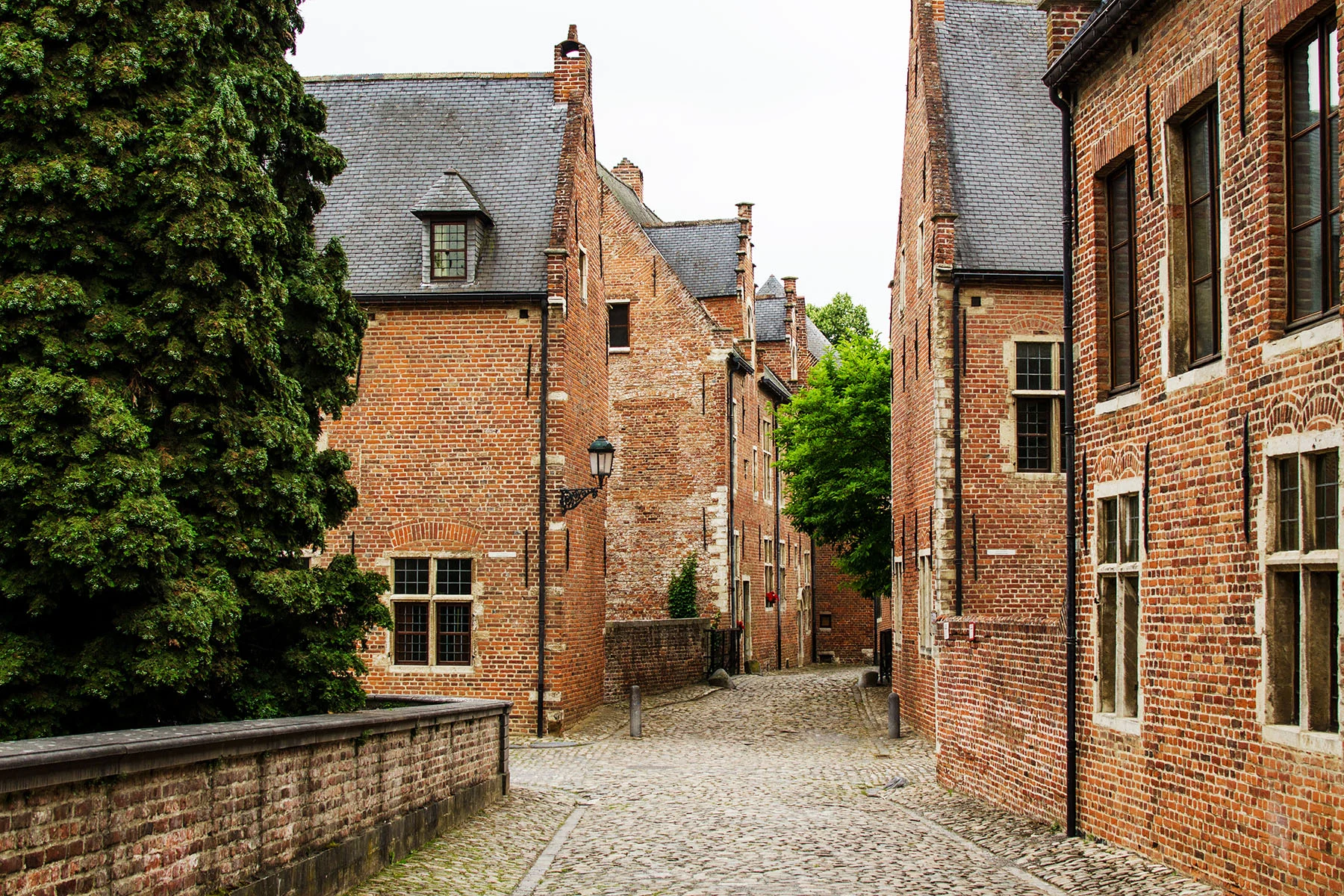
Property and rent prices are generally cheaper in Leuven than its’ big-city counterparts, thus catering to the student crowd. Lower living costs, however, come with steep competition, so it’s vital to do your research early before moving to Leuven. Leuven has five deelgemeenten (submunicipalities): Leuven, Heverlee, Kessel-Lo, Wilsele, and Wijgmaal, all of which have much to offer.
Liège
The center of Liège has a good stock of apartment buildings, and expats tend to gather around a cluster of streets including Boulevards Frère-Orban and Piercot, Rue du Mont St-Martin, and Rue du Jardin Botanique, as well as Les Terrasses. Outremeuse, the island area in the middle of the river Meuse, is becoming a desirable area for its cultural character. The city center is also renowned for its folk festivals and varied nightlife.
Suburban living includes the university area of Sart-Tilman and also Cointe and Embourg. Expat families can easily commute from surrounding areas if they want more space or school options. Accommodation can be harder to get, however.
Louvain-la-Neuve
The city of Louvain-la-Neuve, originally built for students, is now a thriving cosmopolitan hotspot for both the working professional and young families alike. Comprising five different styled districts: Baraque, Biéreau, Bruyères, Hocaille, and Lauzelle. Each district has something for everyone, ranging from lively bars and restaurants to cultural gems such as the Hergé Museum.
As the focus here is on sustainability and environmental awareness, much of Louvain-la-Neuve is car-free, giving plenty of options for you to enjoy nature in the nearby woods and around the central lake. Being conveniently located just 30 kilometers southeast of Brussels, it’s an attractive option for the cross-border commuter.
Louvain-la-Neuve hosts 24h Velo, the biggest student party in Belgium. Other key attractions include the Louvain-la-Neuve Science Park and the Musée Hergé.
Tervuren
In this officially Dutch-speaking area, you’ll hear French and English on the streets among a number of other languages. A large population of expats love the lush country living at the edge of Brussels, with its great park surrounding the Africa Museum and the British School of Brussels at its heart.
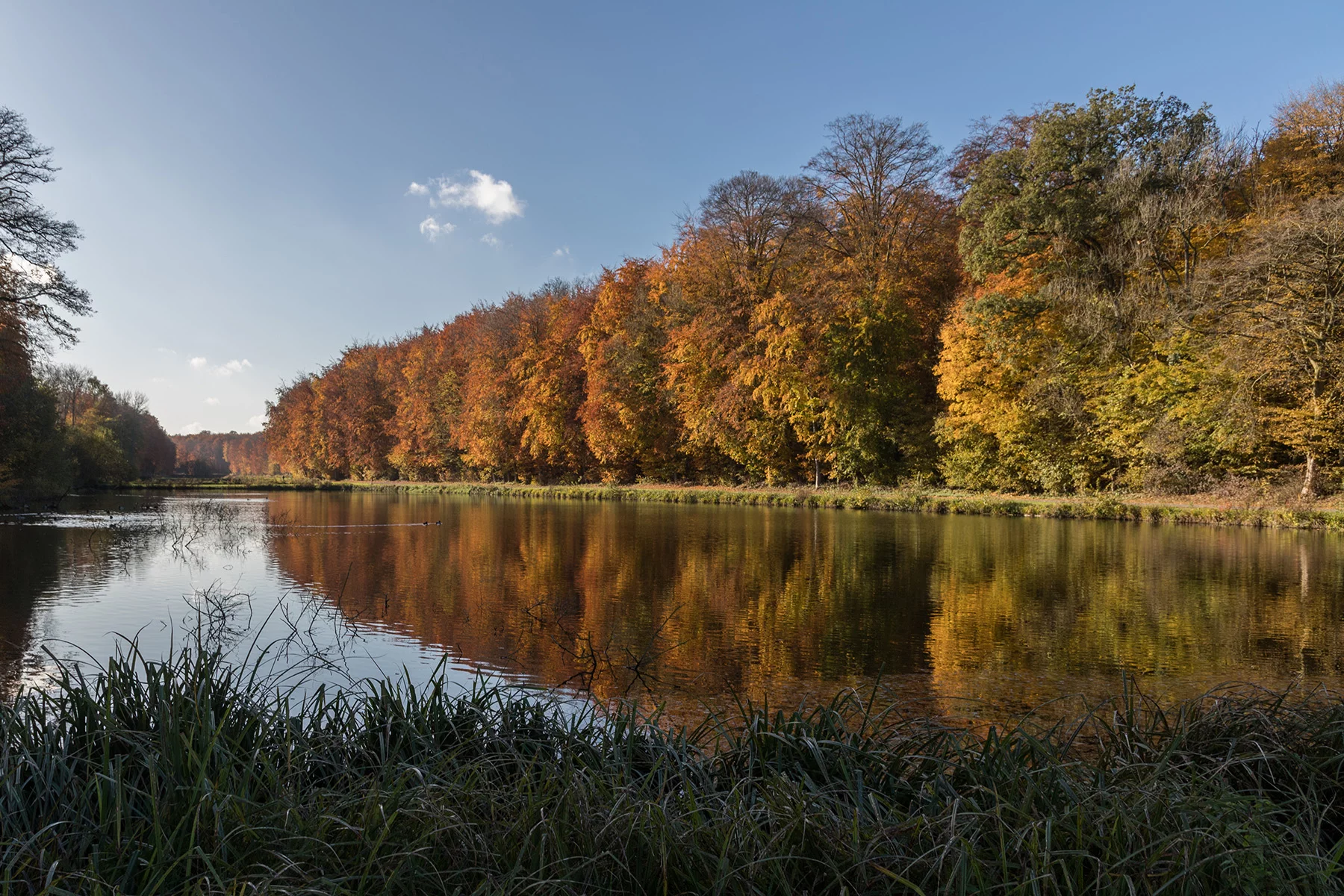
As Tervuren is one of the richer areas of Belgium, houses are expensive but big, with acres of land and a real sense of owning your own patch. Public transportation options are certainly adequate with a handful of bus routes. It’s also at the end of one of the world’s most beautiful tramlines: Line 44, which connects Tervuren with the Montgomery metro station in the Bruxelloise municipality of Woluwe-Saint-Pierre. Tervuren is best suited to families, as life here is rather quiet. The south-bordering municipality, Overijse, is a scenic area also popular with expats.
Read up more on the cost of living in Tervuren.
Waterloo
Waterloo is a small French-speaking municipality popular for its self-containment, meaning there is no need to take the train in and out of Brussels when you need something. It consists of six districts: Faubourg Ouest, Faubourg Est, Chenois, Joli-Bois, Mont-Saint-Jean, and the city center.
It’s a popular area for expats with a raft of international schools and cheaper housing options than Brussels. Around 20% of the population is non-Belgian. Housing tends to be big with ample land, plus there’s a good high street of shops and clusters of big out-of-town shopping centers. It has become particularly popular with Americans and Scandinavians.
Learn more about the cost of living in Waterloo.
Where to live in Belgium
Where to live in Belgium as a family
Belgium is a very family-friendly country to live in. It has good educational, healthcare, and cultural facilities in all the main cities. Belgium is generally quite a safe place to live.
Brussels has many municipalities popular with young families and the city has some of the best international schools. Bruges, Louvain-la-Neuve, and Tervuren are other cities with attractive family-friendly neighborhoods. Waterloo has the appeal of the prestigious ISF Waterloo and St John’s schools.
In terms of living costs, the Brussels-Capital Region is the most expensive for house prices according to Statbel. Wallonia, on the other hand, is the cheapest region. As a result, you might want to consider Waterloo or Liège if you’re looking to economize.
The main Belgian cities all have their crime hotspots, but there are plenty of safe suburban areas. Brussels has the highest crime of any major Belgian city but ranks 24th on the 2019 Safe Cities Index measuring cities worldwide.
Where to live in Belgium when you retire
Belgium ranks 20th on the Global Retirement Index, scoring particularly highly for quality of life and healthcare. Brussels is the first Belgian city recognized by the World Health Organization as an age-friendly city. The Brussels Senior Service runs many activities and events for elderly and retired residents.
Although Belgium is divided into French- and Dutch-speaking regions, with a small German-speaking region too, English is widely spoken across the country. Antwerp is a popular place for those looking for English speakers as it has sizeable anglophone expat communities.
For quality of life, Tervuren has a tranquil rural feel with plenty of countryside and large housing that attracts retirees. Gent and Rixensart also both score highly in terms of quality of life and scenic beauty.
Where to live in Belgium when you’re single
Young singles moving to Belgium are likely to value vibrant culture and nightlife, a good dating scene, and plenty of young people to meet.
Brussels and Antwerp, the two biggest cities in Belgium, are the most renowned for their nightclubbing and dating scenes. Liège and Bruges also have good nightlife and plenty of cultural attractions that make for good dating opportunities.
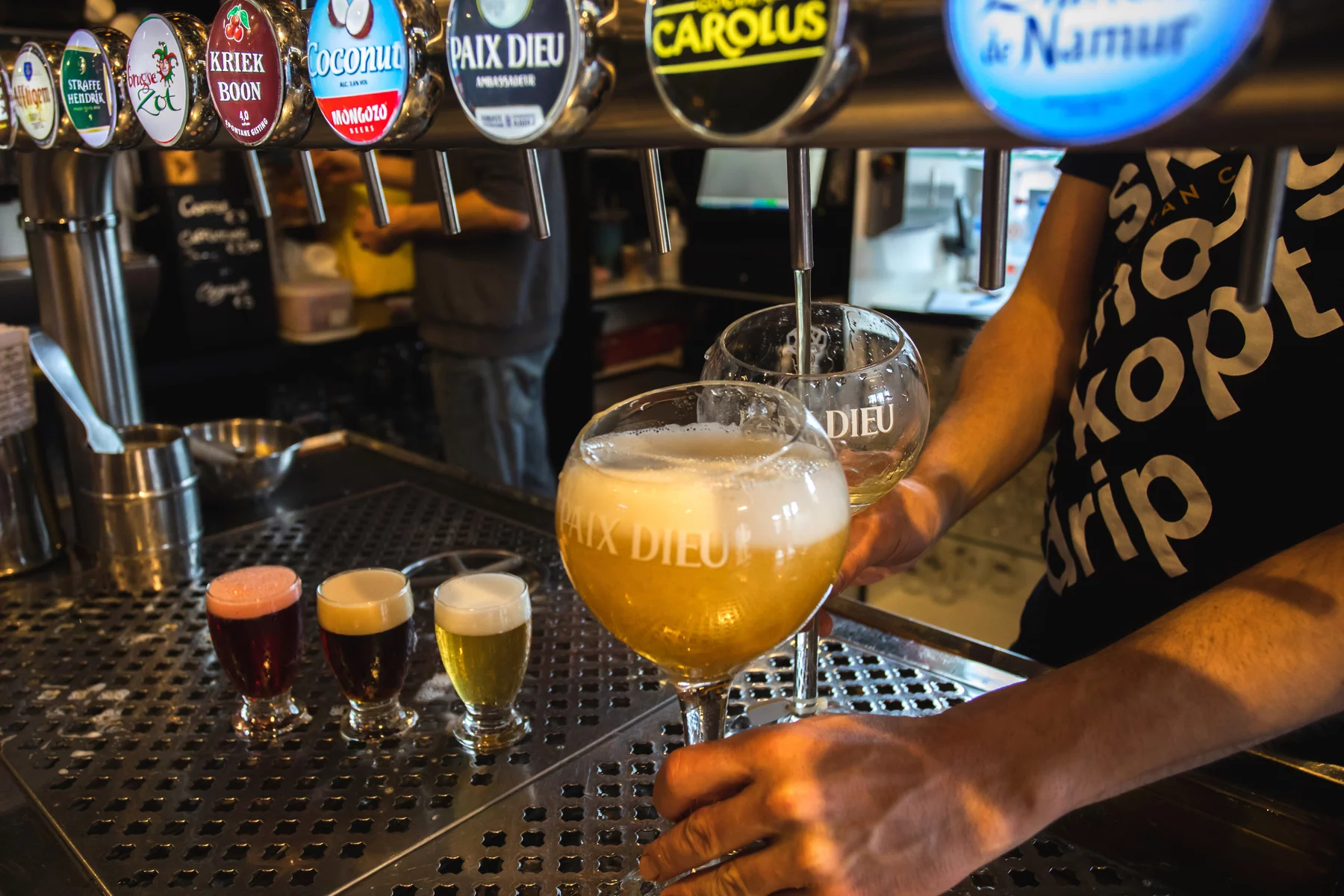
In terms of student populations, Leuven, Gent, and Louvain-de-Neuve are all home to universities that feature highly in the 2020 QS World University Rankings.
Where to live in Belgium on a budget
Gent and Leuven are two good quality cities that are slightly cheaper than the likes of Brussels and Antwerp, with accommodation and general living costs aimed more at the large student populations.
Housing costs in Belgium are generally cheaper in the French-speaking Wallonia, rising slightly in Dutch-speaking Flanders, and most expensive in and around Brussels. However, there are variations within the regions and within cities themselves.
Where to live in Belgium for work and business opportunities
Brussels is unsurprisingly the city that attracts most expats looking to find a job or start a business. It’s the city with the largest economy in Belgium and is also home to both the NATO headquarters and multiple EU institutions.
Brussels has also been ranked as the 44th best city in the world for startup businesses and has a thriving community of entrepreneurs, especially in tech fields.
Antwerp is another good city for jobs and business. Its GDP per capita is not far off that of Brussels. The economy there is dominated by the petrochemical industry, which is the second-largest in the world after Houston in the United States.
Bruges, Gent, and Ieper (Ypres) all have strong tourism sectors so tend to have plenty of jobs during the peak summer season. Liège is the most powerful economic city in Wallonia with a growing and diverse technology sector.
From a regional perspective, the Brussels-Capital Region is the strongest economically and has the highest average salaries. Wallonia has lower salaries and a smaller GDP per capita than Brussels or Flanders.
Places to avoid in Belgium
All cities, even the best ones, have their less desirable areas. Belgian cities are no different. Brussels has some areas with run-down facilities and higher crime rates. According to a 2018 report, the neighborhoods in Brussels with the highest crime rates are Quartier Nord (in the City of Brussels, Dutch: Schaarbeek, French: Schaerbeek, and Dutch: Sint-Joost-ten-Node, French: Saint-Josse-ten-Node), Grand Place (City of Brussels), Mantongé (Dutch: Elsene, French: Ixelles), Dutch: Hallepoort, French: Porte de Hal (City of Brussels), and Dutch: Brabantwijk, French: Quartier Brabant in Schaerbeek/Schaarbeek.
Antwerp has fewer troublesome neighborhoods but areas best avoided are those close to Antwerp Centraal Station and around the port and docks.
The Belgian city with the worst reputation is Charleroi in French-speaking Wallonia. It has ranked worst on the country’s crime and safety index. Furthermore, Charleroi suffered the ignominy of being called the ugliest city in the world.
Finding accommodation
If you’ve decided to live in Belgium, your next step will be finding somewhere to stay. Online property portals such as Immoweb are a good place to start. However, if you’re looking for somewhere especially tailored to internationals, you could also try HousingAnywhere.
Useful resources
- Belgium.be – official government information site for Belgium


